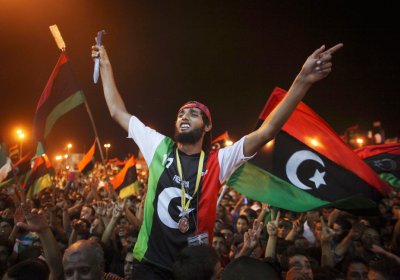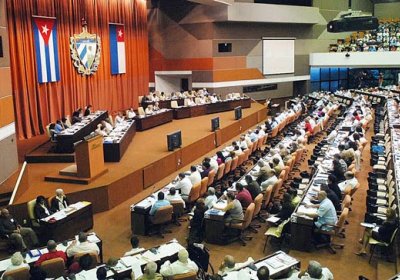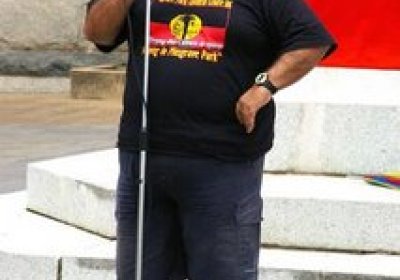Britain: Living standards deteriorating
“Almost 40% of households saw their finances deteriorate between July and August, according to a survey by the financial information company, Markit.
“The study, of 1,500 adults, showed finances worsened at their fastest pace since February 2009, in the middle of the last recession.
“Many reported a rise in debt levels and a fall in savings and income.
“Just under 6% of households reported an improvement in their financial situation.
893
On August 23, military chief Henry Rangel Silva revealed that over 40,000 hectares of land had been recovered and 15,000 people freed from conditions of “slavery” as part of Plan Caura, the Venezuelan government’s anti-illegal mining project.
Silva, chief of Venezuela’s Operational Strategic Command, is head of the anti-illegal mining initiative, formed in 2010 when the Bolivarian Armed Forces (FANB) were given the task of stemming Venezuela’s growing problem with illegal mining activities in the south eastern part of Bolivar state.
Dick Smith’s Population Crisis: The Dangers of Unsustainable Growth for Australia
Allen & Unwin, Sydney
2011, 228 pages
Those who say today’s big social and ecological problems stem from there being too many people on the planet face a special difficulty.
As the Australian ecologist Alan Roberts once said, populationist authors need “to persuade their readers that the main thing wrong with the world was the existence of those readers themselves”.
The new government of Papua New Guinea, led by prime minister Peter O'Neill, has announced plans to revert ownership of minerals and resources to traditional landowners.
Mining minister Byron Chan said in a speech on August 11 the government would seek to give traditional owners legal ownership of resources under the land and sea.
Currently, the PNG government owns anything more than six feet under the surface.
Chan also promised an urgent review of mining and environmental laws, especially those involving deep sea mining.
Another Arab dictator is gone.
But the nature of the fall of Muammar Gaddafi raises questions about the nature of the new regime that will emerge, and to what extent it will truly reflect the interests of Libya's people.
On August 21, forces of the National Transitional Council (NTC) entered Tripoli and claimed victory against the forces that remained loyal to Gaddafi.
A week later, loyalist forces continued to hold out in the dictator's home town, Sirte, and in pockets around Tripoli. But Gaddafi's 42-year reign is over.
With some exceptions, the powerful international media has ignored a recent Cuban parliamentary bill that would deepen democracy on the island.
The reason is obvious: the news is not convenient.
The initiative is made within socialist institutions, not in terms of the “transition” that is highly anticipated and promoted by certain hegemonic interests in this world.
The idea is to give the green light to an experiment in the new provinces of Mayabeque and Artemisa.
If it bears fruit, it would be extended to the whole country through constitutional reform.
The Strategic Review of Indigenous Expenditure was submitted to the government in February 2010 but only made public on August 7 after a long-running freedom of information case brought by Channel 7. Queensland Murri activist and Socialist Alliance spokesperson Sam Watson spoke to Green Left Weekly’s Jim McIlroy about the report’s findings.
* * *
Putrajaya, the seat of Malaysia’s federal government, was built for more than US$8 billion as a fantasy project of the country’s former PM and strongman Mohamed Mahathir.
It was carved out of rubber plantation-covered hills in the 1990s and turned into a planned city for public servants.
Many buildings were designed to look like palaces — with an eclectic mix of styles from around the world — giving the city the look of a sprawling, but spookily empty, theme park.
Private Matthew Lambert became the 29th Australian solider to die in the war in Afghanistan on August 22. Most Australians disagree with the war, but the two big parties remain unswerving in their support of the US-NATO led occupation.
Malalai Joya, a former Afghan MP and outspoken anti-war activist, is visiting Australia for a third time on the eve of the 10-year anniversary of the invasion of Afghanistan.
The Sydney Stop the War Coalition, the Melbourne Writers Festival and the Support Association for the Women of Afghanistan - Australia are the hosts of Joya’s Australian tour.
Australia Post is trying to implement a new form of delivery called separate bundle delivery (SBD). SBD will force posties to sort part of their mail outside while straddling their motor or push bikes, hindering safety.
Currently, mail is sorted into delivery sequence inside the delivery centres and then delivered. SBD will move an hour of the inside work outside, exposing posties to traffic, extreme weather conditions and increased fatigue.
“Boycott Apartheid Israel! Boycott Max Brenner!” were the main themes of a rally and march in Brisbane on August 27, which focused on the Max Brenner chocolate shop at South Bank.
Despite steady rain, more than 50 protesters demonstrated to support a boycott of the Max Brenner chain, as part of the Australian and international boycott, divestment and sanctions (BDS) campaign initiated by representatives of the Palestinian people.
Former Guantanamo Bay concentration camp detainee David Hicks says if he wins the Queensland Premier's Literary Award he will donate the proceeds to torture victims. “If I win this award, every cent will go to victims of torture,” Hicks told Network Ten TV on August 24.
“I have never been a supporter of terrorism,” Hicks said. “I had no choice but to sign a piece of paper to get out of Guantanamo Bay,” the August 25 Courier-Mail reported.
- Previous page
- Page 2
- Next page








